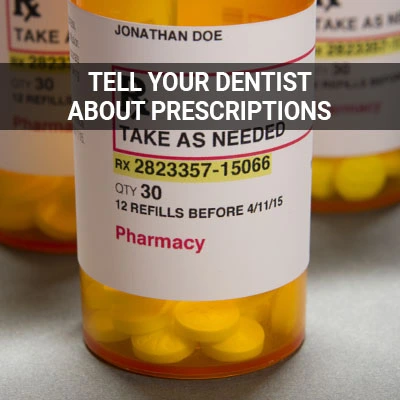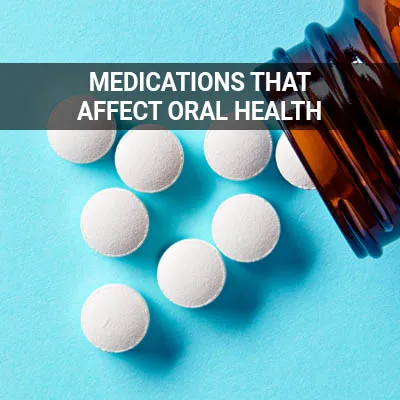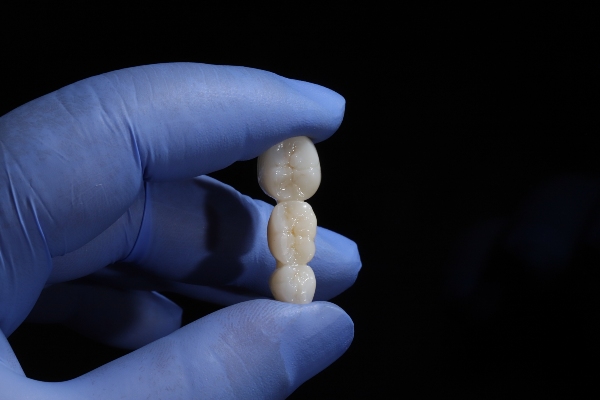Dental Health and Preexisting Conditions Allen, TX
Many people are unaware that the body's systems are all interconnected. Preexisting conditions can affect dental health and vice versa. Fortunately, a general dentist can help you better understand the link between your oral and overall health.
Oral-systemic coverage is available at P.A. Dental Arts in Allen and the surrounding area. We are proud to offer general dentistry services that can benefit your smile and your systemic health. Call us today at (214) 217-2242 to schedule an appointment or to learn more about our services.
Pre-existing Conditions Affected By Dental Health
Pre-existing conditions are conditions that a person has been diagnosed with before enrolling in a dental health insurance plan. The connection between oral and overall health means that a patient's dental health can affect certain pre-existing medical conditions. Dental issues, such as gum disease and infections in the gums and teeth, can adversely impact people's pre-existing health conditions.
Dental health has a connection to chronic diseases, including diabetes and heart disease. When a person has gum disease, the bacteria can cause their blood sugar level to rise, making diabetes more difficult to control. Poor dental health can also affect people with heart disease since a bacterial infection in the bloodstream can impact the heart valves.
“The connection between oral and overall health means that a patient’s dental health can affect certain pre-existing medical conditions.”
Creating a Health Plan For Pre-existing Conditions
Dentists can create health plans to prevent a patient's oral health from adversely impacting their pre-existing conditions. Our team creates personalized treatment plants to strengthen patients' oral and overall health. Dental care goes beyond the mouth. We understand the connection between the mouth and the rest of the body. This well-rounded approach allows us to devise the optimal health plan for a patient. To develop the most accurate diagnosis and treatment plan, we will consider how a patient's dental health affects their pre-existing conditions and vice versa.
“Dentists can create health plans to prevent a patient’s oral health from adversely impacting their pre-existing conditions.”
Finding Plans That Cover Pre-existing Conditions
Every dental insurance plan is different. While medical insurance plans have laws that enforce coverage for all conditions, dental insurance does not. Dental insurance aims to help people prevent dental issues from worsening and requiring more extensive and expensive treatment. For this reason, many dental insurance policies have clauses for pre-existing conditions and waiting periods to prevent people from purchasing insurance only when they need expensive treatment.
Although many plans will cover minor pre-existing conditions, such as cavities, some plans may not provide coverage for more serious pre-existing conditions. When looking for a dental insurance plan, people should look carefully at what each provider considers a pre-existing condition. They should also determine if the out-of-pocket expenses will fit into their budget.
“Although many plans will cover minor pre-existing conditions, such as cavities, some plans may not provide coverage for more serious pre-existing conditions.”
Check out what others are saying about our dental services on Yelp: Dental Health and Preexisting Conditions in Allen, TX
Addressing Preexisting Conditions in General Dentistry
Studies have shown that general health has a bidirectional relationship with oral health, meaning that good health is impossible without a healthy mouth. Some conditions may put patients more at risk for periodontal disease. At the same time, periodontal disease may further aggravate certain conditions. As a result, patients require comprehensive treatment for optimal care. General dentists can treat isolated oral health conditions. However, having access to the patient’s previous and current medical history can inform the dentist on how their oral health impacts their overall health and vice versa.
With the patient’s permission, general dentists can also work with their primary medical provider to personalize their treatment plan to their unique needs. This allows the dentist to address any warning signs of oral disease that they may have otherwise missed. Comprehensive care between dental and medical providers can also help avoid any factors that may aggravate the patient’s oral or overall health.
“Studies have shown that general health has a bidirectional relationship with oral health, meaning that good health is impossible without a healthy mouth.”
Questions Answered on This Page
Q. What pre-existing conditions are affected by dental health?
Q. What ways does a dentist create a health plan for pre-existing conditions?
Q. How to find plans that cover pre-existing conditions?
People Also Ask
Q. What are some dental health conditions that can form during pregnancy?
Q. What lifestyle choices help promote good oral health?
Frequently Asked Questions
Q. What are the risk factors associated with gum disease?
A. One of the main risk factors for gum disease is plaque from insufficient oral hygiene. Smoking, tobacco usage, and medications can also contribute to gum disease. People with certain genetic markers, systemic diseases, or a tendency to clench or grind teeth may also have an increased risk of developing gum disease.
Q. What are the symptoms of a cavity?
A. Cavity symptoms will vary depending on their location and their severity. The beginning stages of tooth decay may not cause any symptoms. However, as the decay progresses, people may experience tooth pain, sensitivity, visible holes or pits, tooth discoloration, or pain when biting.
Q. What happens if I do not have a cavity treated?
A. Cavities can lead to various complications, including pain, swelling, chewing issues, and teeth shifting. Without treatment, a cavity can progress into an abscess or a pocket of pus. This infection can spread and even become life-threatening in extreme cases.
Q. What are the symptoms of gum disease?
A. Healthy gums appear pink and fit tightly around teeth. People with gum disease may have red or purplish and swollen gums that bleed easily. Teeth may also appear longer as the gums recede and the periodontal pockets grow in size.
Q. What happens during scaling and root planing?
A. Scaling and root planing treats chronic gum disease. During scaling, we will remove the plaque from teeth and pockets between the teeth and gums. Root planing involves smoothing out the tooth roots to help the gums reattach to teeth.
Dental Terminology
Call Us Today
If you live in the Allen area, call 214-217-2242 for an appointment in our Allen office.
Helpful Related Links
- American Dental Association (ADA). Glossary of Dental Clinical Terms. 2025
About our business and website security
- P.A. Dental Arts was established in 2013.
- We accept the following payment methods: American Express, Cash, Check, Discover, MasterCard, and Visa
- We serve patients from the following counties: Collin County
- We serve patients from the following cities: Allen, McKinney, Prosper, Fairview, Murphy, Plano, Frisco, Richardson, Parker, and Lucas
- National Provider Identifier Database (1679014823). View NPI Registry Information
- Norton Safe Web. View Details
- Trend Micro Site Safety Center. View Details
Back to top of Dental Health and Preexisting Conditions













